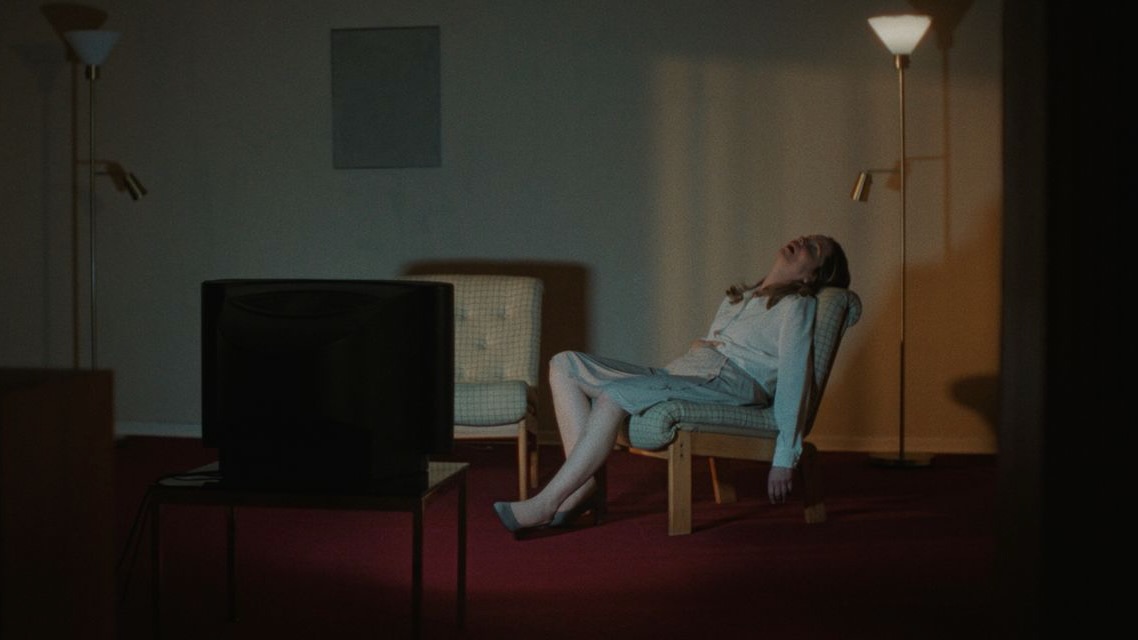 Back to selection
Back to selection
“The Film Is Not About AI, Not About Werner Herzog, and Never Aimed To Embrace AI Technology”: Piotr Winiewicz on His IDFA Opening Night Doc About a Hero
 "About a Hero"
"About a Hero" Piotr Winiewicz’s About a Hero is as mindbogglingly complex as its eye-catching logline is simple: “A murder mystery – unwittingly starring Werner Herzog.” More precisely, the Polish filmmaker’s doc is actually an adaptation of a script in which the aforementioned cinematic maverick travels to the fictional Getunkirchenburg to investigate the strange death of a local factory worker named Dorem Clery. Even stranger, that screenplay was written by “Kaspar” (as in Kaspar Hauser), an AI trained on the Herzog oeuvre.
With a look inspired by the work of German photographer Thomas Demand, the film, shot mostly across northern Germany, also features “real” sit-down interviews with scientists, philosophers and artists; along with AI-generated visuals and a Herzog voiceover (artificially created by machine learning models naturally). There’s even a deep fake Herzog, albeit one that registers as more creepy than real. (Though perhaps that makes it extra Herzogian.)
So to learn all about this meditation on “originality, authenticity, immortality and soul in the age of AI,” Filmmaker reached out to the Copenhagen-based director (and artist and production designer) just after the film’s debut as the opening night selection at this year’s IDFA (November 14-24).
Filmmaker: You’ve said that “the film consisted of two phases, a research phase, and a classical film production phase.” Could you discuss this a bit? How did this elaborate process actually work?
Winiewicz: I would say that the first phase could be almost considered a research and development period. The idea and motivation for the project was clear, but the question was: What is possible? Especially since we started in 2018 when AI tools were not commercially available. So we needed to create these tools, experiment with them, see what’s possible and how “convincing” the result can be in order to create a piece that will work on a cinema screen and not only as an online gimmick. During this phase — and actually all the following production phases ‚ we extensively discussed the legal, ethical and moral responsibilities that come with this practice. Setting up boundaries to ensure that we work with respect.
Whereas the actual production was more of a “regular” film set. We had an entire production crew, actors, locations, etc.
Filmmaker: I read that your team “created a set of dogmas regarding human-machine collaborations that we used as principles to follow during the production of the film…And then we broke them.” What were these dogmas that you broke, and why?
Winiewicz: We created a set of rules to establish a framework for our production. For example, the script was edited from a mass of text that “the machine” produced. When we started working on the project the technology was very different from ChatGPT. You couldn’t simply ask it to write a script. Instead we were flooded with a sea of text that had to be formatted into script form while staying true to its story, and unique but also contradictory qualities (including the idiotic, poor writings).
We purposely created the rules for the “real” and “fake” elements of the film only for these rules to be broken at some point, so that you would doubt every element of the film.
Filmmaker: Interestingly, in addition to Herzog you’ve cited the Orson Welles mind-bender F for Fake as a touchstone. How exactly did that film influence your approach?
Winiewicz: The influence was in both content and form. F for Fake is about trickery, forgery, fakes, and the subject of the film is expressed in an original way. It’s a film within a film, within a film. It pretends to be transparent but it is not; it uses tricks and more tricks to blur the lines between reality and fiction. Then ultimately asks, Does this distinction even matter?
Filmmaker: Though Herzog gave the project his blessing, he was also quite skeptical of the endeavor. So did the final cut change his mind at all? Does he see it as validation that “a computer will not create a film as good as [his] in 4,500 years”?
Winiewicz: I don’t think the film ever aimed to change his mind. There is a certain irony to that opening quote. The idea was never to challenge Werner. (And I think it would be idiotic to try, especially for a first-time feature film.) The quote rather stands symbolically for our inherent human feeling of superiority over technology — and how this feeling of superiority reflects our deeply rooted technophobia. Because the film is not about AI, not about Werner Herzog, and never aimed to embrace AI technology. It is rather a meditation on our complex relation to technology. Technology that we create, use in even the most intimate aspects of our lives, and yet we fear and despise it.
Filmmaker: Have you learned any big lessons, about AI and filmmaking — and perhaps humanity — through making About a Hero? Are you alarmed and/or reassured in regards to the technology to come?
Winiewicz: The film industry is an industry after all, so I am sure it will adapt technology that will make things faster, cheaper and more efficient. I guess the script for our film will reassure screenwriters that they can sleep well at night and not have to worry for their jobs. Even though the script and some particular lines were intriguing, they were a product of rather primitive tools. New tools are much better at writing, but they also become increasingly predictable too. For people worried that AI will bring a tsunami of generic content – well, people didn’t need AI to create a mass of generic content.
In general I would be more concerned about this same technology being used in a modern warfare context, and the consequences of that.
